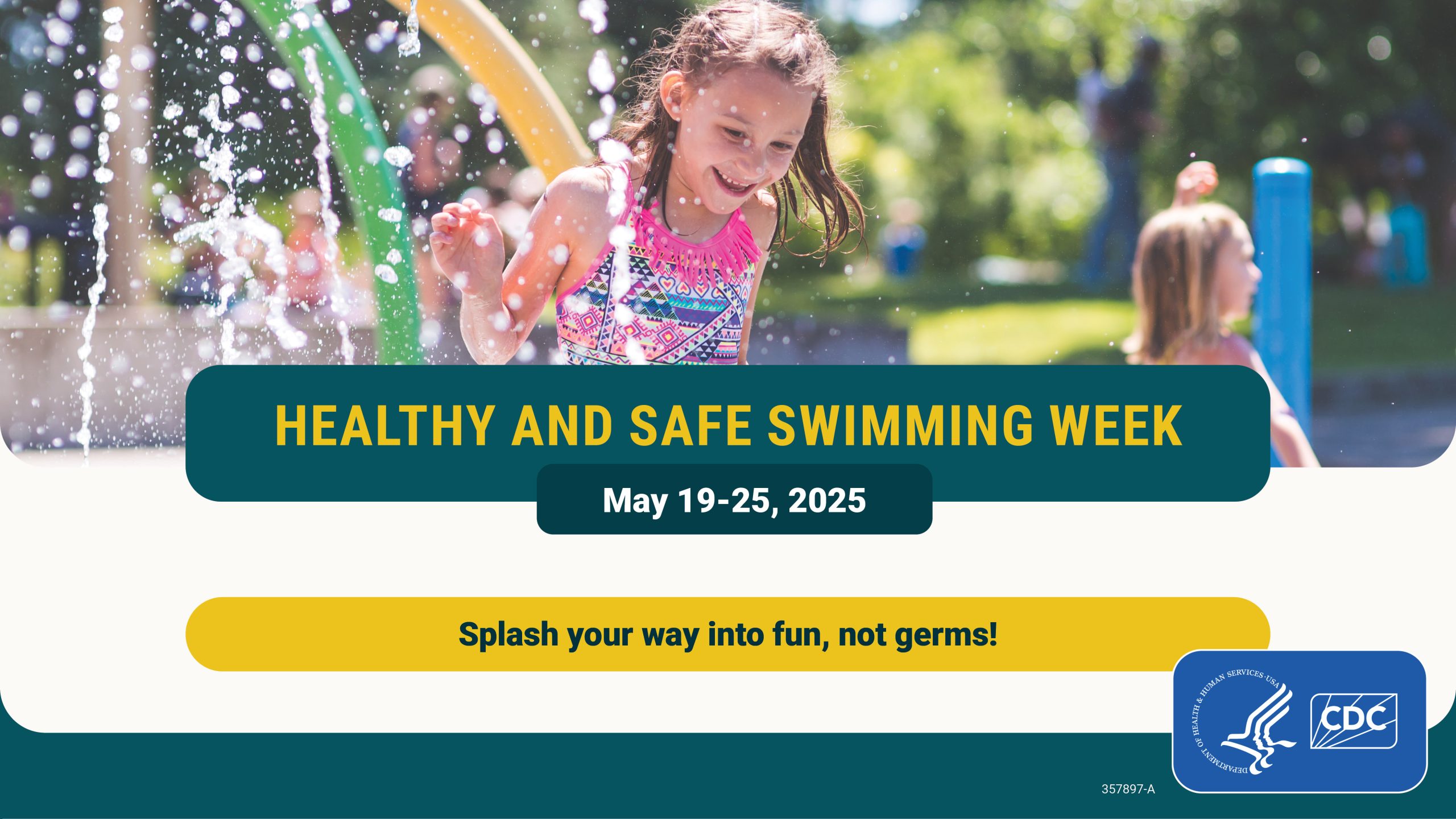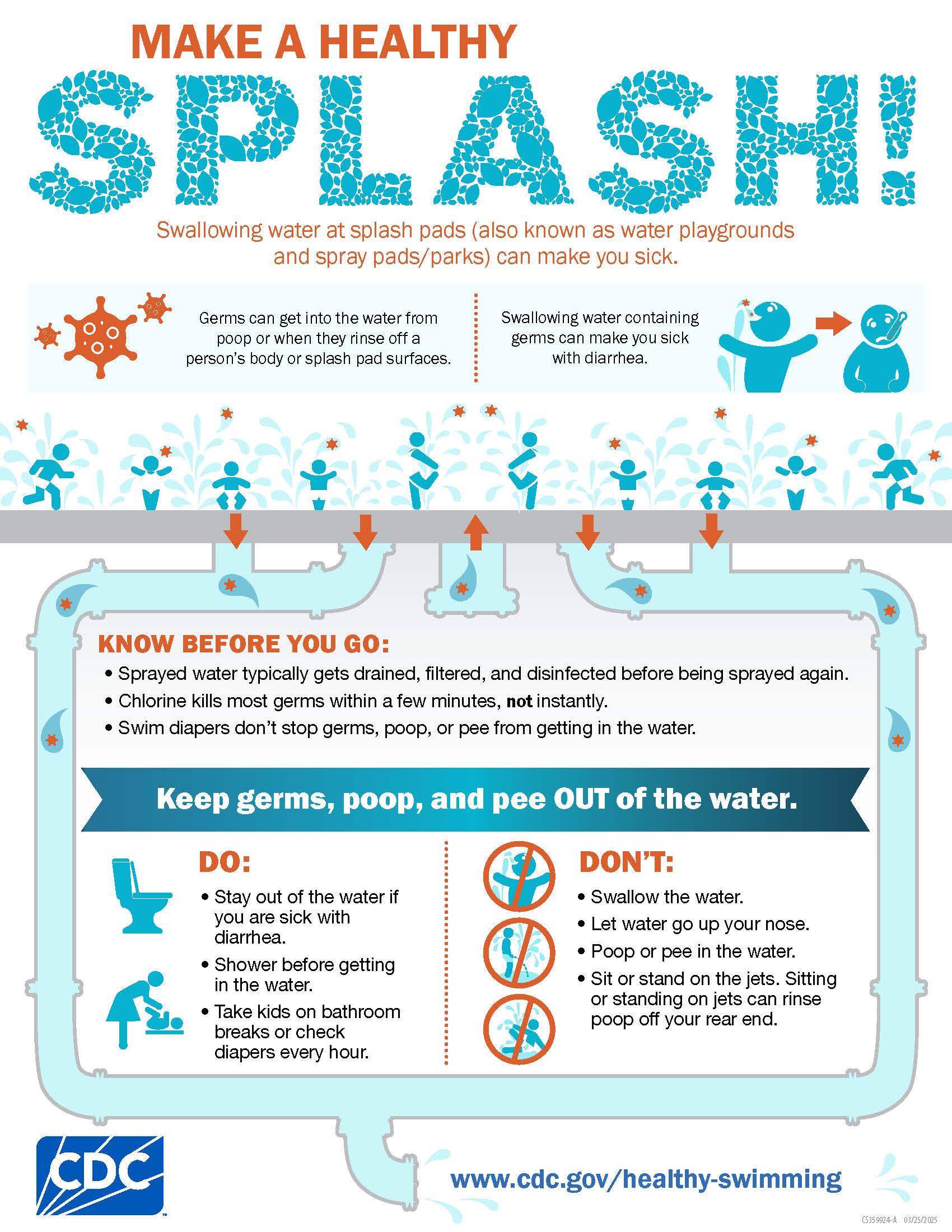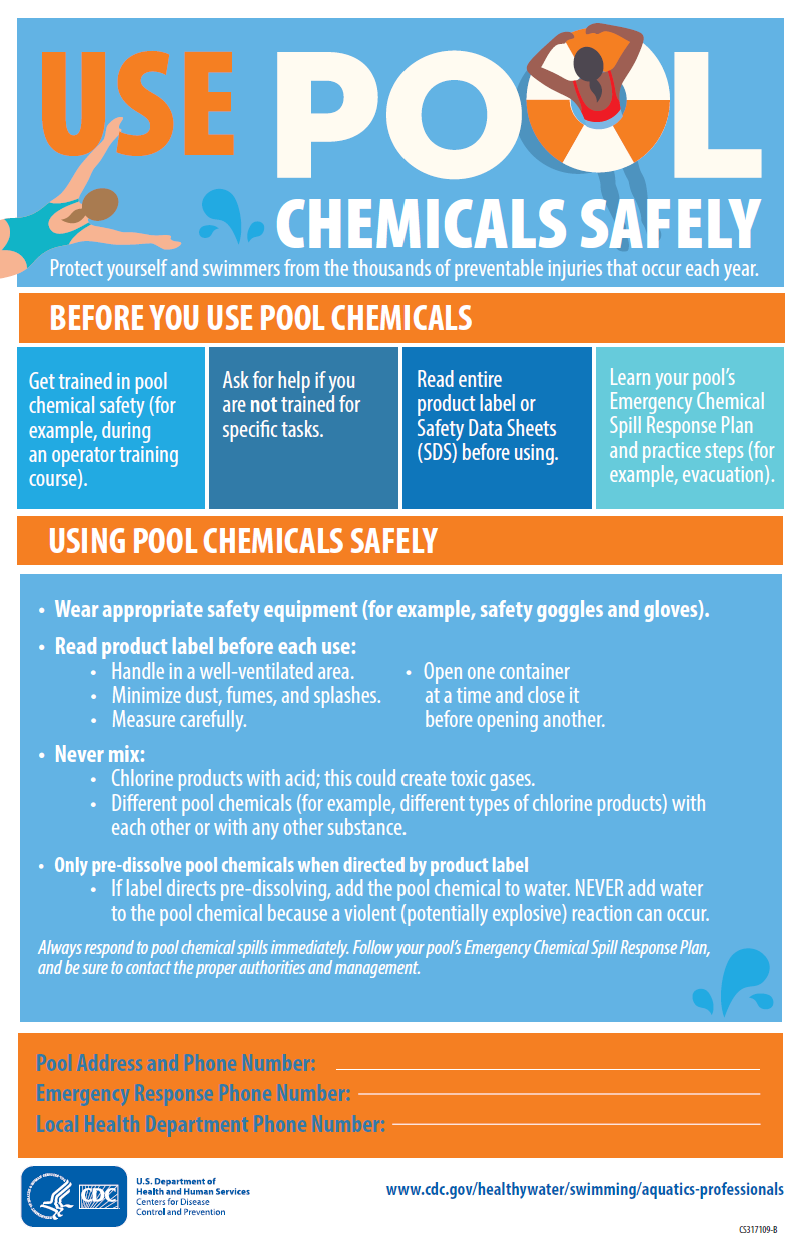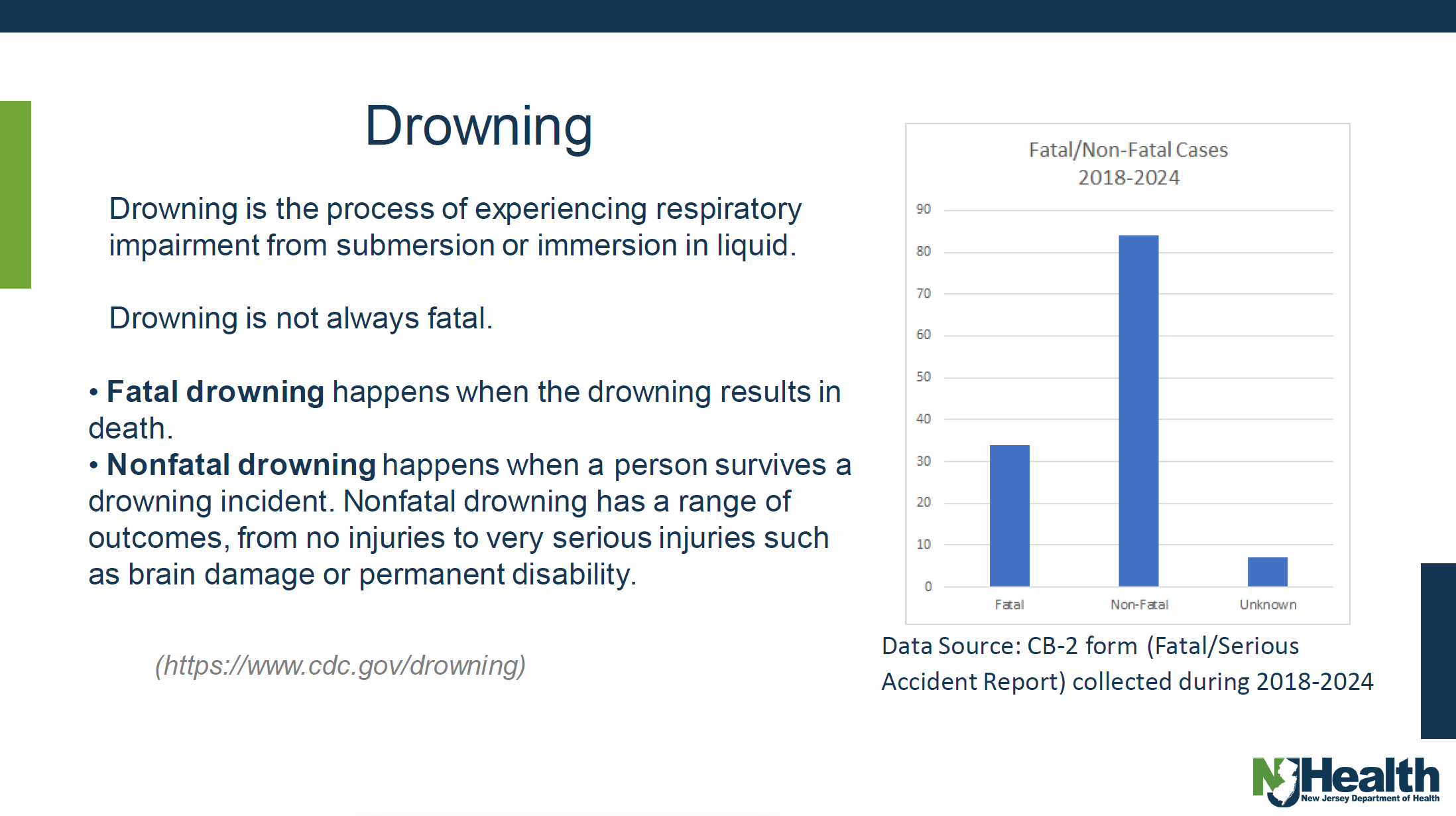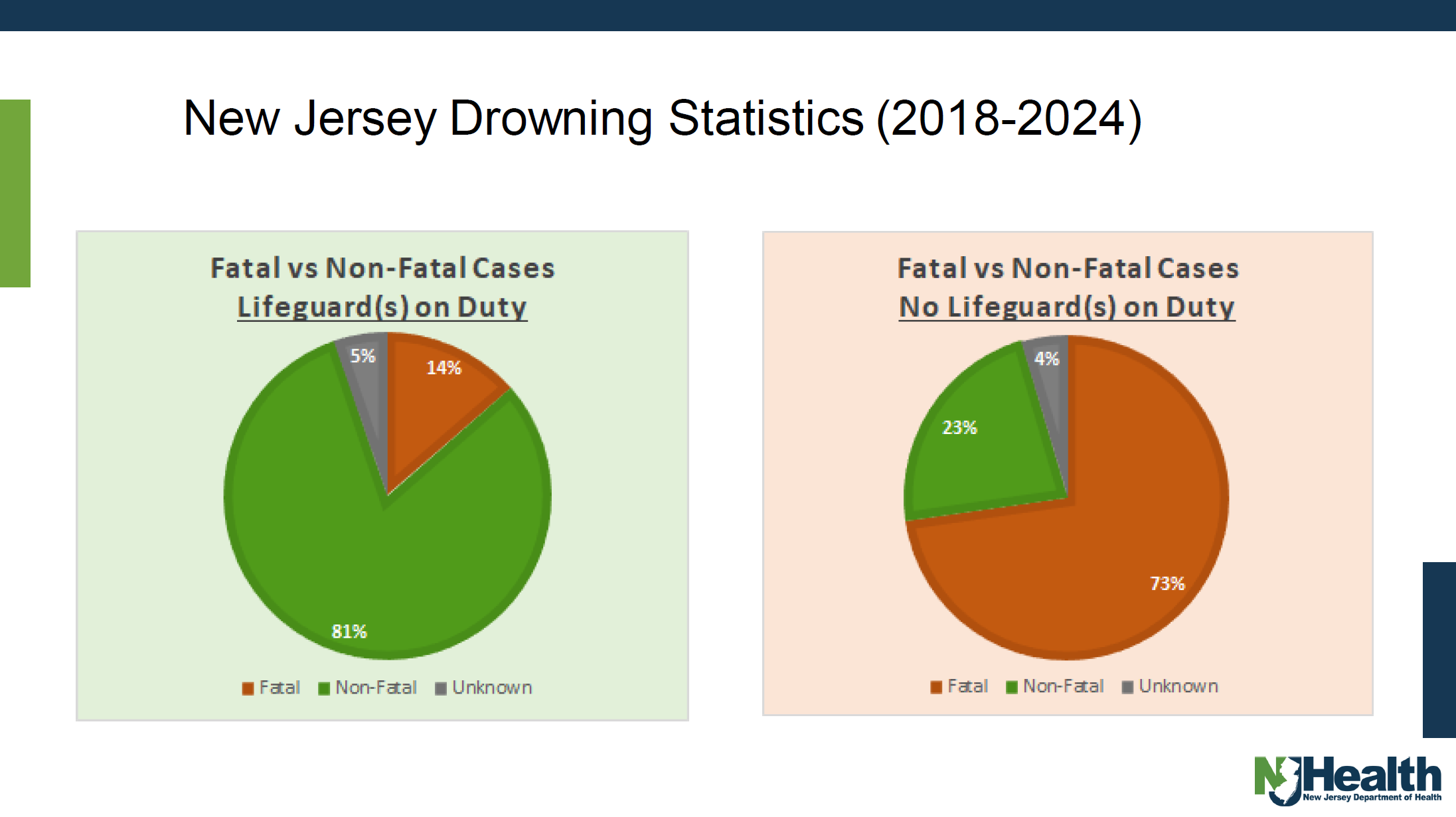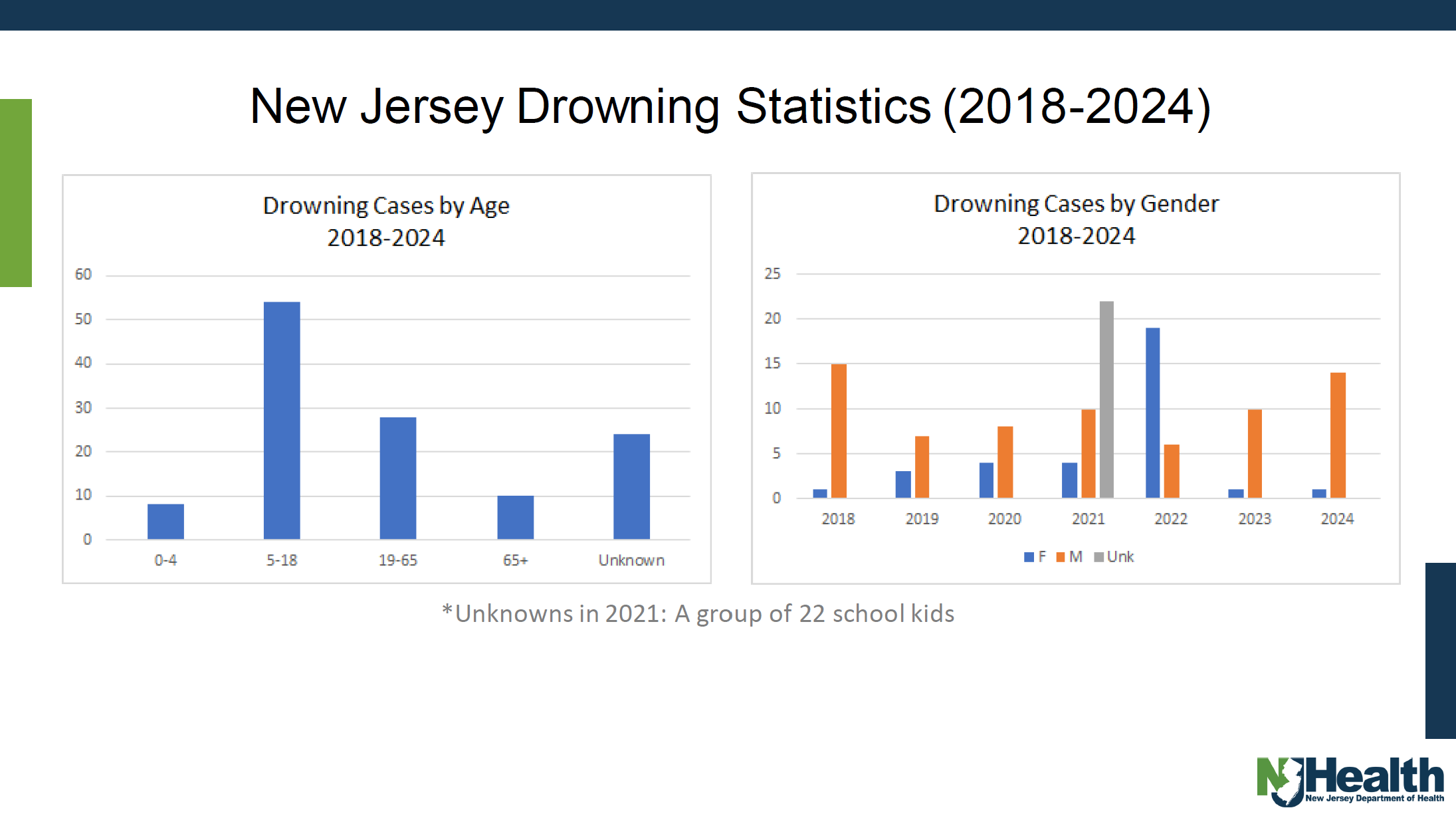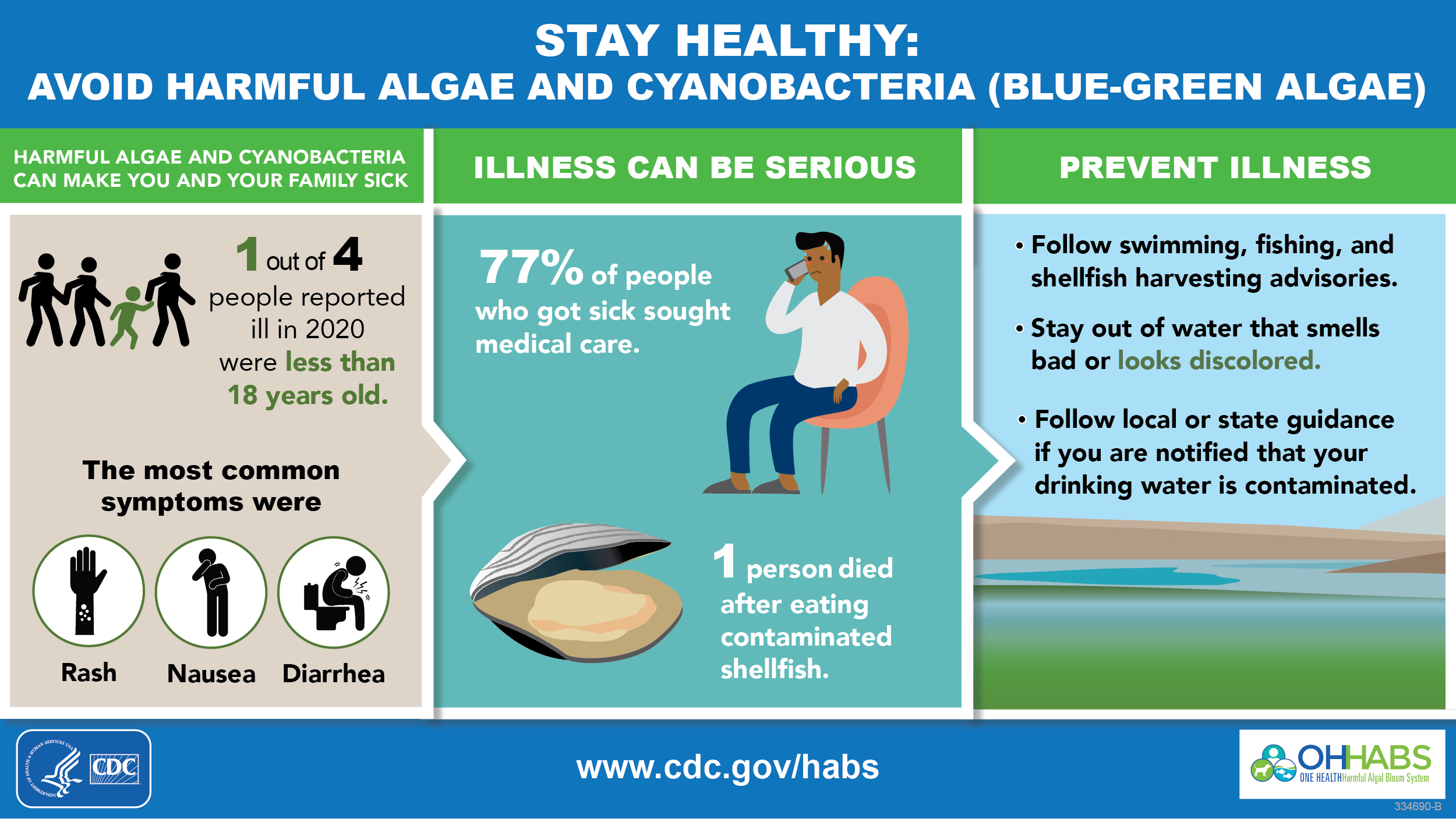- Home
- Public Health and Food Protection Program
- Public Recreational Bathing
Public Recreational Bathing
The purpose of the Public Recreational Bathing Project is to ensure the health and safety of bathers within all public recreational bathing facilities and improve public health in the state of New Jersey. The project provides guidance and interpretation of N.J.A.C. 8:26, the Public Recreational Bathing rule.
Recorded Webinars
Local Health Officals: Ready for Summer (2025)
Youth Camp and Public Recreational Bathing Project Updates
Local Health Officals: Ramping Up for Summer (2024)
Youth Camp and Public Recreational Bathing Project Updates
Local Health Officals: Ahead of the Summer (2023)
Youth Camp and Public Recreational Bathing Project Updates
Healthy & Safe Swimming Week 2025
Splash Your Way into Fun, Not Germs
Splash pads offer a fun, convenient, and engaging activity for children,, but the water can pose risks. If someone swallows even a small amount of water contaminated with diarrhea-causing germs, they can get sick for weeks. When going to the splash pad with your kids, tell kids not to sit on jets, which can rinse and spread germs off rear ends. Take breaks every hour to use the bathroom or check diapers. Don’t take your child to the splash pad if they are sick with diarrhea. To further explore, please visit the CDC and learn more about how to stay healthy at splash pads.

Drowning
Drowning happens quickly and quietly, so avoid distracting activities like being on a phone. Watch kids closely when they are in or around water. Teach children basic swimming and water safety skills. Swimming lessons can reduce the risk of drowning. Children who have had swimming lessons still need close and constant supervision when in or around water. To learn more, please visit the CDC's Preventing Drowning webpage.
Pool Chemical Safety
Pool chemicals are added to pools, hot tubs and spas, and water playgrounds to protect swimmers from germs and prevent outbreaks. Other pool chemicals help with the disinfection process (for example, pH control). Pool chemicals can also improve water quality, stop corrosion and scaling of equipment, and protect against algal growth.
However, pool chemicals can injure people when mixed together or when appropriate personal protective equipment is not used when handling them. Review our recommendations to help you use chemicals safely.
Please visit the CDC's Pool Chemical Safety webpage for more information.
Drowning Statistics and Prevention
Facts
The Facts:
- More children ages 1–4 die from drowning than any other cause.
- Drowning happens in seconds and is often silent.
- Drowning can happen to anyone, any time there is access to water.
Prevention
You can prevent drowning by:
- Learn basic swimming and water safety skills
- Build fences that fully enclose pools
- Supervise closely
- Wear a life jacket
- Learn CPR
- Know the risks of natural waters
- Avoid alcohol
- Use the buddy system
- Take additional precautions for medical conditions
- Consider the effects of medications
- Don’t hyperventilate or hold your breath for a long time
Statistics Based on Age and Gender
To learn more, please visit the CDC's Drowning Prevention website.
Harmful Algal Blooms
What are harmful algal blooms (HAB)?
Cyanobacteria are a type of bacteria capable of photosynthesis. Although they are not true algae, they were often referred to as “blue‐green algae”. A cyanobacterial harmful algal bloom (HAB) is the name given to the excessive growth, or “bloom”, of cyanobacteria. Adverse health effects from recreational exposure to cyanobacterial cells and cyanotoxins can cause effects ranging from mild skin rash to serious illness.
HABs often occur under suitable environmental conditions of light, temperature, nutrient enrichment, and calm water. CyanoHABs and their toxins can harm people, animals, aquatic ecosystems, the economy, drinking water supplies, property values, and recreational activities, including swimming and commercial and recreational fishing.
Who handles HAB monitoring in NJ?
In New Jersey, HAB monitoring, identification, and response activities are conducted through a collaboration of partners including the Department of Environmental Protection’s-Bureau of Freshwater & Biological Monitoring, the Department of Health-Public Recreational Bathing Project, and local health authorities who oversee freshwater lakes, rivers and streams. Please access the links below to learn more about HAB’s and New Jersey's coordinated response efforts.
Additional Resources
Cooperative Coastal Monitoring Program
CCMP
Freshwater Recreational Bathing Geomean Data Collection
The Cooperative Coastal Monitoring Program (CCMP) is a collaborative effort by the Department of Environmental Protection (DEP), Division of Water Monitoring and Standards, Department of Health (DOH), Public Health and Food Protection Program's (PHFPP) Public Recreational Bathing Project and coastal local health authorities (LHA), to assess coastal water quality at public recreational bathing beaches. Sources of water pollution are subsequently investigated to protect public health and safety as results are continuously shared with the public.
Water samples are collected from coastal marine waters routinely from mid-May through September. Samples are analyzed for the fecal indicator bacterium, Enterococcus. Enterococcus itself is generally not harmful but indicates the possible presence of pathogenic (disease-causing) bacteria, viruses, and protozoans that also live in human and animal digestive systems.
Swimming in water exceeding the standard poses an increased risk of illness, such as gastroenteritis, low-grade fevers, and infections. To protect the public’s health, any sample found to exceed the maximum standard concentration of 104 colony-forming units of Enterococci per 100 ml of sampled marine waters, requires a swimming advisory and/or closure of the recreational bathing waters. Resampling and a sanitary survey of the area by a licensed health inspector are conducted.
The DEP coordinates CCMP activities, with the cooperation of the DOH, to ensure New Jersey’s bathing beaches are safe and clean. You can find more information about beach water quality sample results, beach status, reports, fact sheets, and similar information by visiting: https://njbeaches.org/.
Regulatory Resources
- Cleaning, Remediation, and Pool Contamination
- Disinfection & Testing
- Free-Chlorine Residual
- Guidance: 2018 Rule Changes
- Sanitary Survey Template
Rules and Documents
- N.J.A.C. 8:26 Public Recreational Bathing Regulation
- CB-2: Fatal/Serious Accident Report Form
- Freshwater Bathing Beach Contact Form
- Jan 2019 Statutory Change
- Freshwater Geomean Form - Instructions
- Current Recognized Certifications
- Model Aquatic Health Code
- Checklist for Public Recreational Bathing Facilities
Data and Statistics
Consumer Resources
- Learn Basic Swimming and Water Safety Skills
- Oceans, Lakes, and Rivers: Visiting and Water Quality Information
- Prevention - Drowning and Injury
- Drain Cover Compliance Letter, VGBA (FY25)
- Warning to Stop Using Maxmartt Pool Drain Covers due to Entrapment Hazard
- Pool Safety for Parents: Together We Can Prevent Drownings
- Heat Hub: Search for Places to Visit to Seek Relief from the Heat
Frequently Asked Questions
Public Recreational Bathing Complaints
- Complaints regarding public recreational bathing facilities may be directed to the facility's local health department.


